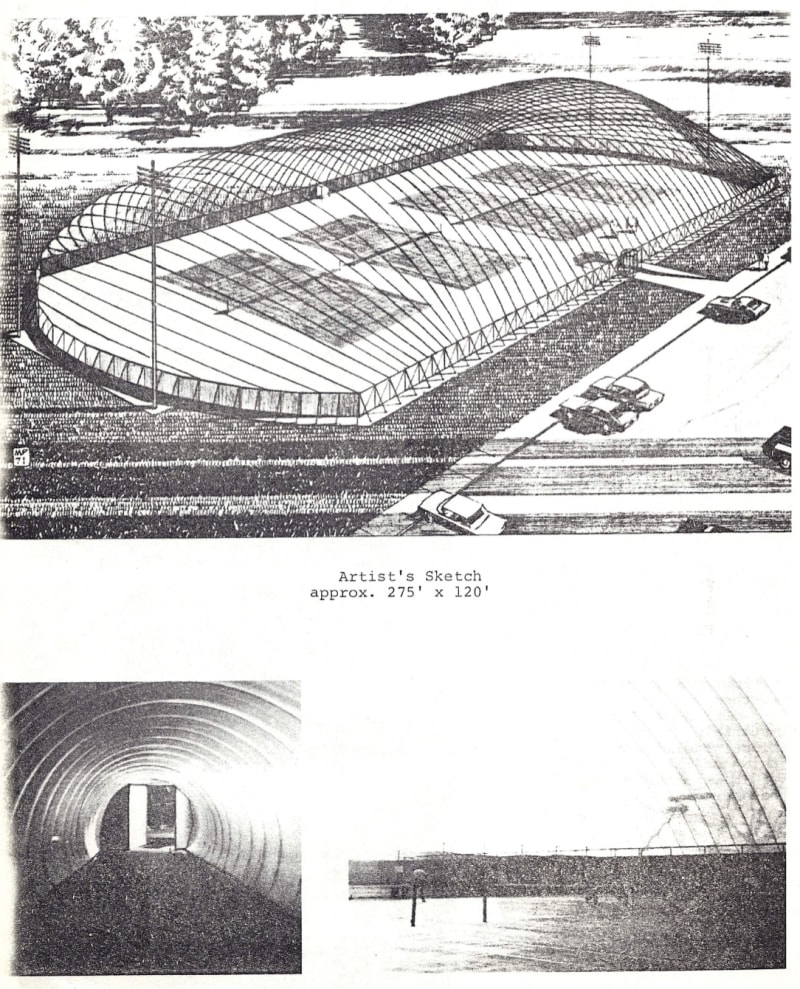Figures illustrate a massive thermoplastic-impregnating fiber-weaving-loom, designed to simultaneously-weave-fold-and-stack, two double-layered (up to) 600-foot-wide by one-mile-long thin-flexible-expansible-fiber-reinforced-plastic-barrier-sheets onto a central 600-foot long multi-segmented robotic-platform delivery-vehicle, within the central airlock of an inflatable ESI dome. As each pair of the four massive (up to 600-feet-wide-by-5280-feet-long) fabric sheets are woven , they are individually thermally-impregnated with one of several possible thermoplastics, by hydraulically-opposed heated rollers. The adjacent paired plastic-impregnated woven-fabric-layers of fiber-cloth are then sealed together in linear-alloy-cable-reinforced-thermoplastic-seams using evenly-spaced 601-foot-long crystalline-alloy-anchoring-cables, embedded between the plastic sheets by robotically-opposed linear steam-anvils, (for the “Oil-Capture-Invention) or alternatively are sealed lengthwise by heated-compression-rollers which overly the outer woven-sheets, and compress the sheets to create seams with continually-deployed-cable-sections from 5281-foot-long cable reels located beyond the hydraulically-opposed-heated-roller-thermoplastic-impregnation-devices built into the loom.
The ends of these evenly-spaced thermally-sealed cables are each crimp-looped by separate robots to form “eyes” which are attached to application-specific-hardware.
At each end of the factory, each pair of sheets is woven from up to 144,000 stacked-spools of fiber, by “floating-bobbin-accelerators” on “weaving-tables” which are vertically-separated on each side of the loom, by 50-feet. The two woven-fabric sheets, spaced 50-feet vertically apart, move centrally from the weaving tables and are independently impregnated with compressed-thermoplastic between-steam-heated-opposed-rollers. The massive-fabric-loom weaves the two double-sheets of alloy-cable-anchored plastic-impregnated-fiber-cloth from each end of the 1000 foot wide factory. The vertically-separated-sheets are brought together with the stretched-alloy-cable to form a thermoplastic-alloy-cable-impregnated seam. The alloy-cable-seam-joined-plastic-impregnated-double-sheets are advanced centrally to a stacking/folding or cylindrical-rolling robot, which automatically loads the folded-or-spool-rolled double-fabric-sheets onto a multiple-independently-steered-multi-section-robotic-platform-delivery-vehicle, which rests in a central 12-foot deep concrete-paved trench in the center of the 610 foot x 1000 foot factory floor, slab foundation. The two-central-600-foot-long, stacked-loading-pallets are independently-lowered vertically by 4 computer-controlled “scissor-jacks”, to stack the two “finished” 600 x 5280 foot lap-folded (or spool-rolled) double-sheets on top of one another on the 12 foot wide platform of the 600-foot long multi-segmented steerable-robotic-platform-vehicle.
For sheet-manufacturing applications related to the “Implementable Multi-Component Solution for Capturing Oil and Gases Escaping from Fractured Vertical Pipes on Underwater Oil Drilling Platforms” (See 2011&2012 Contest Entries), the multi-segmented steerable-robotic-platform-vehicle is driven up from its factory-trench along a 650 foot long ramp at the side of the massive-fabric-loom factory in an airlock-room, and leaves the factory, ascending this ramp with all 10 finished lap-folded plasticized-fabric-sheets as cargo, after the rear-airlock-door is closed, so as to preserve the inflation of the large overhead inflated ESI factory dome (Figure 3).
The Kevlar-reinforced polyethylene sheets formerly produced as “ESI Film” by Environmental Structures Incorporated to create inflatable buildings, domes and structures is potentially adaptable to many of these applications, however, the loom described in Figure 1 is a superior means to manufacture the double-layered reinforced-flexible-plastic-barriers, with potentially better than a 6-day cycle-time to produce, fold, stack and export each pair of 600 x 5280 foot parallel-alloy-cable anchored double-sheets. The woven reinforcing-fiber can be Kevlar, Graphene or "Kaplan-Crystalline-Alloy Fiber". For "Oil-Capture-Invention" applications, Kaplan Super-Thermoplastic is superior to polyethylene and many other thermoplastics because it is indissoluble in petroleum.
Like this entry?
-
About the Entrant
- Name:Harvey Kaplan
- Type of entry:individual
- Patent status:pending








